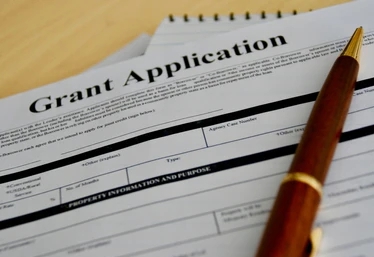Travel grants for early career researchers in 2023 can provide an excellent opportunity to gain valuable experience and expand your professional network. As a young researcher, attending conferences, conducting fieldwork, or collaborating with colleagues from around the world can be crucial to your career development. However, the cost of travel and lodging can be a significant barrier, particularly if you’re just starting out in your field.
That’s where travel grants come in. Many organizations and institutions provide funding to help early career researchers offset the cost of attending conferences, conducting research, or pursuing other professional development opportunities abroad.
In this article, we’ll explore some of the top travel grants available for early career researchers in 2023, including eligibility requirements, application deadlines, and tips for putting together a strong application.
1. Fulbright Scholar Program
The Fulbright Scholar Program is one of the most prestigious and competitive travel grants available to early career researchers. The program provides funding for scholars to conduct research, teach, or pursue professional development opportunities in over 140 countries.
To be eligible, applicants must be U.S. citizens with a Ph.D. or equivalent professional degree, or be currently enrolled in a doctoral program.
Application deadlines vary by country, so be sure to check the Fulbright website for specific deadlines and eligibility requirements.
2. DAAD Research Grants
The German Academic Exchange Service (DAAD) offers research grants for early career researchers to conduct research in Germany. These grants are open to individuals in all fields and disciplines, and provide funding for up to six months of research. Eligibility requirements and application deadlines vary depending on the specific program, so be sure to check the DAAD website for more information.
3. European Molecular Biology Organization (EMBO) Fellowships
The EMBO Fellowships provide funding for early career researchers in the field of molecular biology to conduct research in a host laboratory in Europe. Fellows receive financial support for up to two years, as well as access to training courses, networking opportunities, and other professional development resources.
To be eligible, applicants must have a Ph.D. or equivalent degree, or have at least four years of research experience.
Application deadlines are typically in February, June, and October.
4. American Association of University Women
The AAUW International Fellowships provide funding for women pursuing graduate or postgraduate degrees, or conducting research in any field or discipline, to study or conduct research abroad. The fellowship awards range from $18,000 to $30,000 depending on the level of study and the duration of the project.
To be eligible, applicants must be women who are U.S. citizens or permanent residents, and must have earned their bachelor’s degree by September 30th of the year they apply.
Application deadlines are typically in November and December.
5. Japan Society for the Promotion of Science
The JSPS Fellowship provides funding for early career researchers in all fields and disciplines to conduct research in Japan. The fellowship awards provide financial support for up to two years, as well as travel expenses, housing, and other benefits.
To be eligible, applicants must have a Ph.D. or equivalent degree, or be enrolled in a Ph.D. program.
Application deadlines are typically in April and October.
Tips for Applying for Travel Grants
When applying for travel grants, it’s important to keep a few things in mind to ensure your application stands out:
- Research the organization and program you’re applying to: Make sure you understand the goals and objectives of the organization and the specific program you’re applying to, as well as the eligibility requirements and application process.
- Tailor your application to the program: Utilize the knowledge you’ve acquired to customize your application for the particular program you’re seeking admission to. Emphasize the alignment between your research or professional development aspirations and the program’s goals and objectives.
- Highlight your qualifications and achievements: Make sure to emphasize your qualifications and achievements in your application, such as relevant education, research experience, publications, and awards. Be sure to also include any language skills or cross-cultural experience that may be relevant to the program you’re applying to.
- Develop a strong research proposal: If you’re applying for a research grant, be sure to develop a strong research proposal that outlines your research objectives, methodology, and potential outcomes. Make sure to also include a detailed budget and timeline for your project.
- Secure strong letters of recommendation: Letters of recommendation can be a critical part of your application, so make sure to secure strong letters from individuals who can speak to your qualifications and potential. Be sure to also provide your recommenders with any relevant information or materials to help them write a strong letter.
- Submit a polished application: Finally, make sure to submit a polished and error-free application. This means proofreading your application, ensuring all required materials are included, and meeting all application deadlines.
Final thoughts
Travel grants can be an excellent opportunity for early career researchers to gain valuable experience and expand their professional networks. With a wide range of grants available for 2023, from the prestigious Fulbright Scholar Program to the AAUW International Fellowships, there are options for researchers in all fields and disciplines.
By carefully researching and tailoring their applications to specific programs, highlighting their qualifications and achievements, and developing strong research proposals, early career researchers can increase their chances of securing a travel grant and taking their careers to the next level.
Originally posted 2023-05-05 22:39:39.

